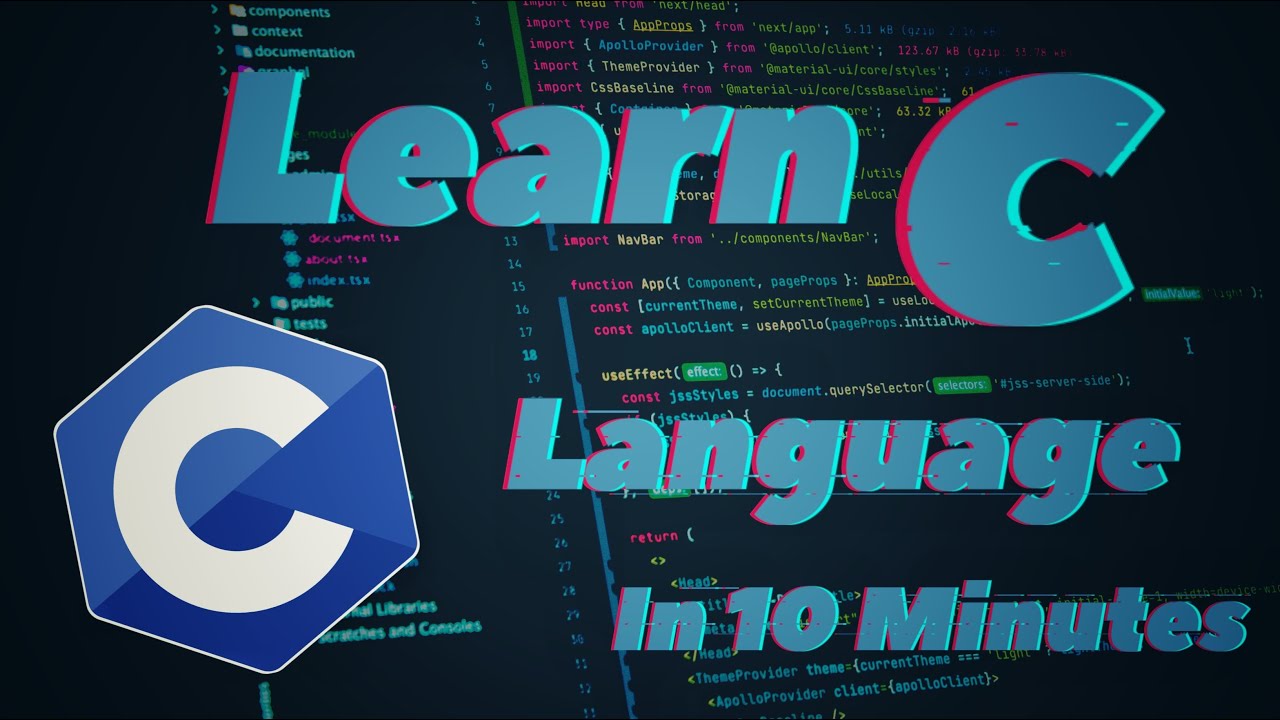Brief history of the C++ language
Summary
TLDRIn 1978, Brian Kernighan and Dennis Ritchie introduced the C programming language at AT&T Labs in New Jersey. Seven years on, Bjarne Stroustrup built upon C's foundations by creating C++, a language that embraced object-oriented programming and other enhancements. The '+' in C++ symbolizes an increment operator in C, suggesting an advancement over its predecessor. C++ has influenced many languages, including Apple's Objective-C and Microsoft C, and continues to be a significant language with 9% of lines written, ranking third after C and Java.
Takeaways
- 📚 Brian Kernighan and Dennis Ritchie developed the C programming language, which was published in 1978.
- 🔢 C++, a C-based language, was introduced in 1985 by Bjarne Stroustrup, incorporating object-oriented programming and other enhancements.
- 🔄 The '+' in C++ symbolizes the increment operator in C, suggesting an improvement over the original C language.
- 🍎 Variants of C++ include Apple's Objective-C and Microsoft C, indicating the language's adaptability and widespread use.
- 🌐 Many newer programming languages, such as Java, have been influenced by C++, showing its enduring impact on the field.
- 📈 C++ is the third most commonly written language, with 9% of lines written, following C and Java, as depicted in the graph.
- 💡 The development of C++ aimed to extend the capabilities of C, adding object-oriented programming constructs for more structured and reusable code.
- 🛠️ C++'s popularity can be attributed to its performance and flexibility, making it suitable for a wide range of applications.
- 📝 The script highlights the historical significance of C and C++ in the evolution of programming languages and their continued relevance today.
- 🔑 The naming of C++ reflects the language's incremental improvements over its predecessor, C, and its role in advancing programming paradigms.
- 🌟 The script provides a snapshot of the programming language landscape, with C++ holding a notable position among other languages.
Q & A
Who were the original creators of the C programming language?
-Brian Kernighan and Dennis Ritchie created the C programming language while working at AT&T Labs in New Jersey.
In what year was the C programming language first published?
-The C programming language was first published in 1978.
Who is credited with the development of the C++ programming language?
-Bjarne Stroustrup is credited with the development of the C++ programming language.
When was the C++ programming language first described in a book?
-C++ was first described in a book in 1985, seven years after the publication of C.
What programming paradigm does C++ support that C does not?
-C++ supports object-oriented programming, a paradigm not present in the original C language.
What does the '++' in the name C++ represent?
-The '++' in the name C++ represents the increment operator in C, suggesting an improvement over the C language.
Can you name some variants of C++?
-Variants of C++ include Apple's Objective-C and Microsoft C, among others.
How does the script describe the influence of C++ on newer programming languages?
-The script states that many newer languages, like Java, have a strong C++ flavor, indicating C++'s influence on their design.
What is the script's claim about the popularity of C++ in terms of lines of code written?
-According to the script, C++ is the third most commonly written language, with 9% of the lines written in all languages.
Which languages are mentioned in the script as being more commonly used than C++?
-The script mentions that C and Java are more commonly used than C++, with C++ following as the third most used language.
What does the graph mentioned in the script illustrate?
-The graph in the script illustrates the percentage of lines written per language, showing C++'s position as the third most written language.
Outlines

Cette section est réservée aux utilisateurs payants. Améliorez votre compte pour accéder à cette section.
Améliorer maintenantMindmap

Cette section est réservée aux utilisateurs payants. Améliorez votre compte pour accéder à cette section.
Améliorer maintenantKeywords

Cette section est réservée aux utilisateurs payants. Améliorez votre compte pour accéder à cette section.
Améliorer maintenantHighlights

Cette section est réservée aux utilisateurs payants. Améliorez votre compte pour accéder à cette section.
Améliorer maintenantTranscripts

Cette section est réservée aux utilisateurs payants. Améliorez votre compte pour accéder à cette section.
Améliorer maintenantVoir Plus de Vidéos Connexes

The History Of Programming Languages in 5 Minutes

Learn C Language In 10 Minutes!! C Language Tutorial

C_01 Introduction to C Language | C Programming Tutorials

جلسه اول - دوره آموزش زبان برنامه نویسی C | سطح مقدماتی - متوسط

A Brief Introduction to C

Dennis Ritchie's video interview June 2011 by DennisRitchie.in
5.0 / 5 (0 votes)
